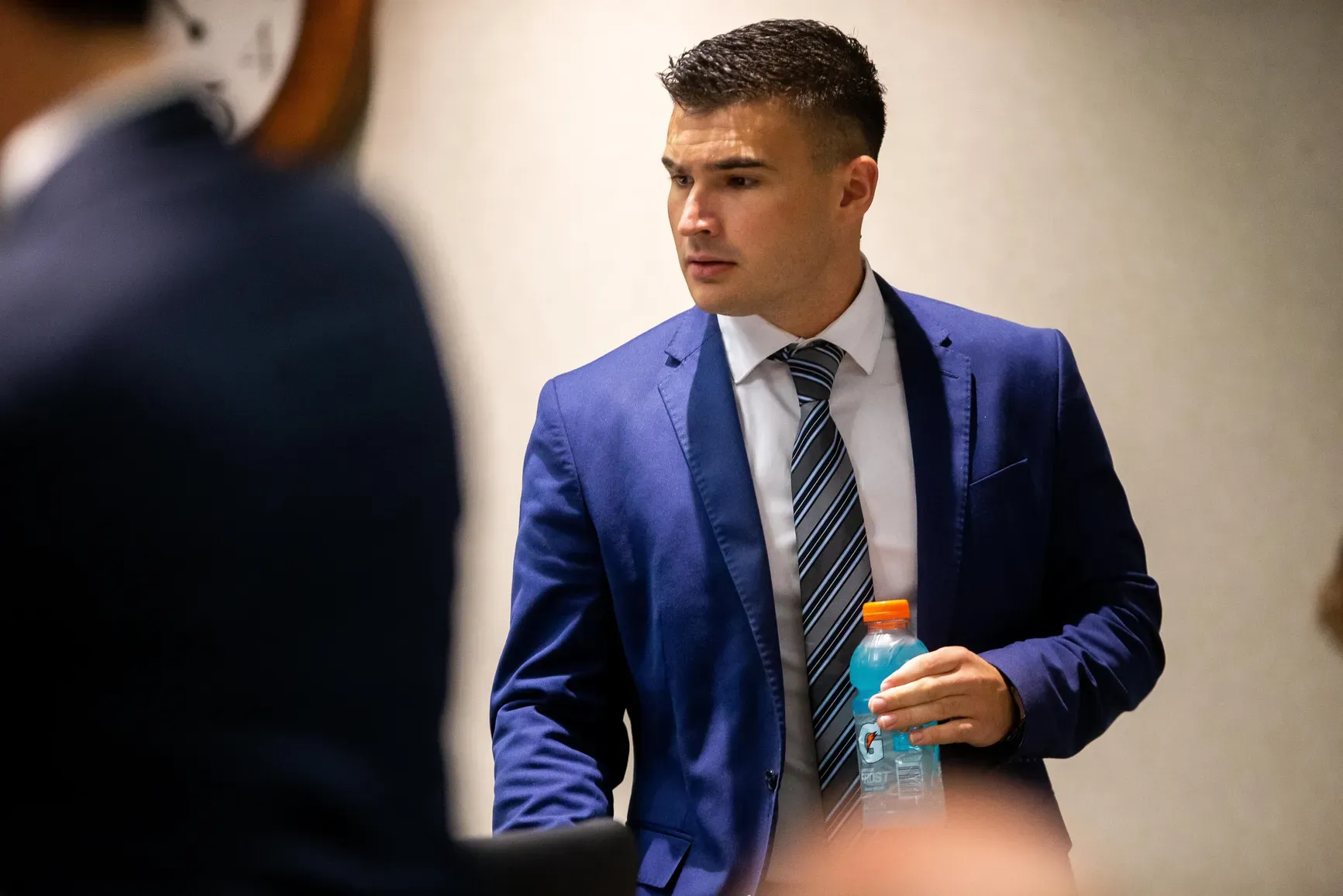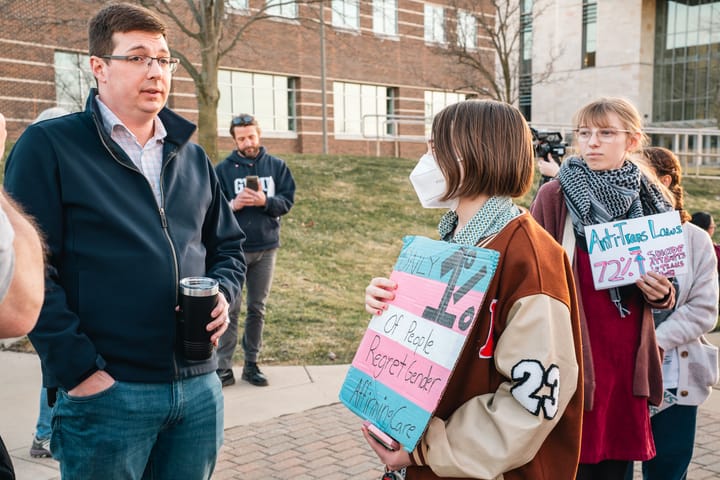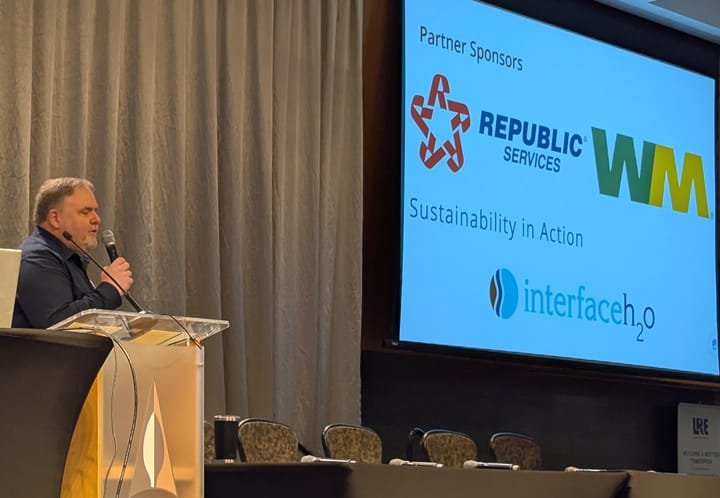Judge won't halt payouts to Ottawa County contracts, emergency appeal filed
The emergency filing by Howard to the court of appeals asked that the court rule by 9 a.m. Thursday, Dec. 19, in order "to prevent irreparable harm."

OTTAWA COUNTY — A trio of controversial decisions approved by the Ottawa County Board of Commissioners are still in limbo after a judge denied a temporary restraining order preventing funds of about $850,000 from leaving the county’s coffers.
Grand Rapids-based attorney Sarah Riley-Howard filed for a temporary restraining order Dec. 16 that would prevent a contract for $563,000 funds from being dispensed from the county to Chester Township.
Howard filed an appeal on Wednesday, Dec. 18, the same day Kent County 17th Circuit Court Scott A. Noto denied Howard's motion with no explanation.
She also is challenging a pair of separation agreements with the county’s interim administrator and administrative executive aide — that exceed $280,000 — claiming the county board violated Michigan’s Open Meetings Act in multiple ways.
Howard, who is representing Port Sheldon Township resident Dan Zimmer in the combined filing, said Ottawa Impact commissioners on the board approved the agreements because they were rewarding supporters and loyalists before losing their majority at the beginning of 2025.
The filing, which asks that the decisions be invalidated, marks the seventh lawsuit the current board has faced in the two-year term that began on Jan. 3, 2023.
The separation agreements
Severance agreements with Interim Administrator Ben Wetmore and Executive Aide Jordan Epperson were approved at the board’s Dec. 10.
Both employees allegedly told commissioners they would pursue legal action against the county if they didn’t receive agreements, according to multiple sources with firsthand knowledge of the matter.
The sources are being granted anonymity because they fear retaliation from the Ottawa Impact majority on the board.
Documents released by the county on Dec. 16 through a Freedom of Information Act request confirmed that Wetmore will receive one year of pay, which is $175,000, which is subject to taxes and withholdings; he will not receive health insurance beyond his separation date of Jan. 1, 2024.

Epperson will receive five months of pay ($33,974.20) as well as five months of insurance benefits. He also will receive a lump-sum payment of $75,000, which is not subject to tax and withholdings. Not including the cost of benefits, Epperson will receive $108,974.20; his employment also will end Jan. 1.

At the Dec. 10 board meeting, commissioners went into separate closed sessions to discuss Epperson’s and Wetmore’s respective employment with the county. They then approved, in split votes, separation agreements for both men.
The decision could be legally problematic in two key ways.
Firstly, the board wasn’t actively seeking “dismissal, suspension, or discipline” against either employee, nor was there any evidence that “complaints or charges” were brought against either man. Personnel evaluations also didn’t occur, so the closed sessions could not be compliant with Michigan’s Open Meetings Act.
Howard said OI commissioners anticipated it was a possibility that the new commission in January 2025 might fire Epperson and Wetmore.
Both employees allegedly told commissioners they would pursue legal action against the county if they didn’t receive agreements, multiple sources with firsthand knowledge of the matter previously told the Ottawa News Network.
Howard said Moss “intended to champion the county” by offering Epperson and Wetmore “lucrative severance agreements in closed session.”
Secondly, the resolutions to approve the separation agreements didn’t disclose any details of the agreements and might not be clear enough to be legally binding — another potential violation of OMA, Howard said.
“In failing to disclose any details about the agreements with Epperson and Wetmore, (the county) also violated OMA’s requirement that all decisions of a public body take place in a public meeting,” Howard said in the filing.
On Dec. 11, Moss posted on social media that the move was made to “help facilitate a smooth transition,” pointing to the fact that “incoming board members have also expressed their intent to replace top administration employees.”
“Both agreements approved yesterday are in line with past severance agreements and relevant details considered by the board,” Moss said. “If anyone — including the press, tries to malign these employees or say they were fired, that is completely false. Ben and Jordan are valued employees who will continue to serve the county through the end of this year.”
Howard said Moss’ post confirmed that “the purpose of the closed session was not to discuss dismissal or discipline of Epperson and Wetmore, nor for any other permitted purposes under the Open Meetings Act.”
The filing asks a circuit court judge to order the county to submit the minutes of the closed session on Dec. 10 to the court for review and to determine if the board violated the OMA. Howard also asked that the judge release the minutes to the public and prevent the county from paying out the funds.
The OI majority has indicated it intends to "fix" the Open Meetings Act violations by amending the agreements and revoting in an open meeting, which is scheduled for Dec. 19.
The emergency filing by Howard to the court of appeals asked that the court rule by 9 a.m. Thursday, Dec. 19, in order "to prevent irreparable harm."
Howard said the county was holding funds pending a decision from the court and that, even if the agreements are approved for a second time, the OMA violations are not resolved.
"Plaintiff believes that the Commission will try to re-enact those contracts under the procedure outlined in the OMA; however, unless this court orders release of the closed session minutes in which the commission unlawfully discussed those contracts, the commission cannot re-enact the decision to approve those contracts in conformity with the OMA," Howard wrote.
As of publication, the court of appeals had not responded to the filing.
The Crockery Lake contract
The recent decision by the county board to give more $563,000 in one lump sum to Chester Township to “revitalize” Crockery Lake over the next five years was seemingly a sudden and contentious decision with little public process.
The plan, however, was in development for many months, with only select officials involved in the process, and questions remain on why the deal happened with little public discussion and didn’t follow the county’s traditional purchasing policies.
Howard challenged the Crockery Lake contract in two ways, alleging that it violated Michigan’s Open Meetings Act and because the board does not have the legal authority to conduct a lake-improvement contract.
In her argument supporting the OMA violation, Howard alleged that commissioners “met secretly and out of public view either collectively and/or round-robin-style; sent representatives to meet and negotiate with Chester Township officials on behalf of the county without transparency to the entire commission; and purported to agree to commit county funds for the Crockery Lake project, which eventually became the subject of the contract.”
She pointed to a statement the Crockery Lake Association issued to its members in September that said county officials had been positive and “very promising” in supporting the lake-improvement project.
She also highlighted the fact that the Chester Township Board unanimously voted to approve a contract to do the work on Dec. 9 — one day before the county board approved the funding — “despite having no plan how to pay Restorative Lake Sciences which did not involve county money.”
“Township officials had reason to believe that it was a fait accompli, or predetermined, that (the county commission) would vote to give the township the necessary funds, no strings attached, at the county commission vote the following evening.
Howard also noted that the contract presented to commissioners on Dec. 10 “contained several substantive changes” from the contract that was discussed and approved by the county’s finance and administration committee on Dec. 3, including changing the recipient of the funds from the vendor, Restorative Lake Services, to Chester Township.
She said the vote at the Dec. 10 meeting was a fait accompli, or predetermined by the OI-affiliated majority commissioners before the meeting began, noting that the contract requires that the county pay the entire $563,404 to Chester Township even before permit applications are submitted or secured.
Howard noted in her filing that when non-OI Commissioner Jacob Bonnema asked about funding milestones for the project, OI Commissioner Gretchen Cosby responded: “You … are asking about whether you can retract dollars. Maybe that might be why we want to fund it in full.”
Howard said Cosby’s comment was an indication that the outgoing board was attempting to prevent incoming commissioners from undoing the decision.
“It was understood that (Cosby) meant that the contract obligated the county to pay the entirety of the cost of the project upfront and prior to the end of 2024 so the new commissioners could not reverse course, or have the opportunity to revisit any inadvisable aspect of the contract, when they take office in about three weeks,” Howard wrote.
Howard also noted that there was no formal bid process and that board policy requires a competitive bid process for service contracts greater than $35,000.
In a second challenge to the Crockery Lake contract, Howard said the board exceeded its legal authority to conduct a lake-improvement contract.
Support Our Work
Ottawa News Network is a nonprofit news service dedicated to providing the residents of Ottawa County with trustworthy, community-driven news. ONN treats journalism as a public good — something that enriches lives and empowers Ottawa County’s 300,000-plus residents to stay engaged, make informed decisions, and strengthen local democracy. Please consider giving today.
“A county board of commissioners cannot evade its jurisdictional limitations by funneling the entirety of the funds for a lake improvement project through a township,” Howard wrote, noting that state law dictates that a county board of commissioners may only provide up to 25 percent of the cost of a lake-improvement project on any public inland lake and that a lake board is required and that a special assessment district be completed to help fund the project.
Crockery Lake has not formed a lake board as of publication.
The filing asked the judge to find that the contract violated the OMA and that the contract be found legally unenforceable.
The Crockery Lake contract was not on the Thursday, Dec. 18, agenda as of 3:45 p.m. Wednesday.
— Contact Sarah Leach at sleach@ottawanewsnetwork.com. Follow her on Twitter @ONNLeach.



